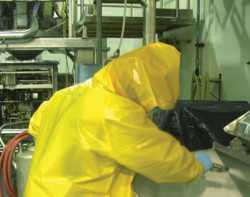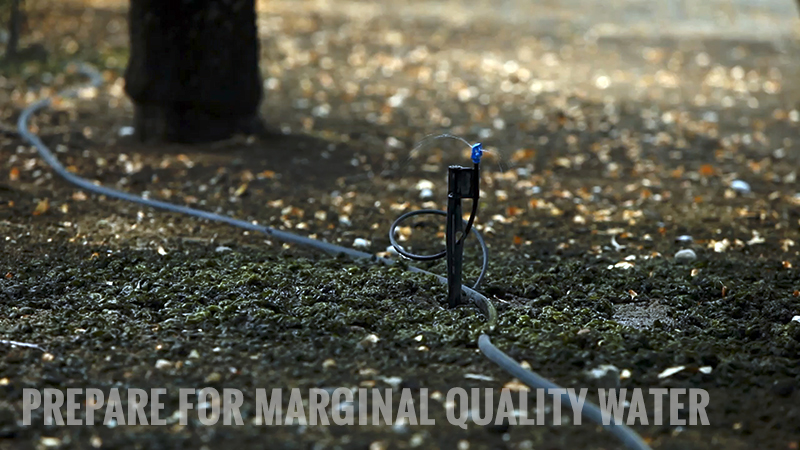Carefully Monitored Systems Food Safety Systems

For growers and processors in the fresh apple slices industry, trust is as essential to the safety of the product as the various sanitation methods applied to the apples — educated and informed trust, that is.
Failure by employees at the packinghouse to institute the proper sanitation methods can easily contaminate apple slices. The safety of this particular type of product isn’t guaranteed even once it arrives at the store, as apple slices can quickly become inedible if they are not properly refrigerated.
However, the health and convenience benefits of apple slices have motivated a number of companies to implement meticulous preservation practices that ensure consumers will receive a fresh and disease-free product.
“We always define our product from farm to shelf, and we believe everything starts in the field with good agriculture practices. We work very closely with the people who supply us with apples to make sure they are aware of what they should be doing,” Tony Freytag, director of marketing for Crunch Pak, says.
Carefully Monitored Systems
Apples are particularly vulnerable to contamination after they are sliced, because once that occurs, the inside of the fruit is exposed to the air. That is the key reason why Crunch Pak processes its products in rooms equipped with a filtered air system.
“In that sense, it is like performing surgery. The whole aspect of controlled atmosphere is an art and a science,” Freytag says.
Crunch Pak rinses its apple slices in a calcium ascorbate and water mixture containing the minerals calcium and ascorbic acid (Vitamin C). The calcium is incorporated to strengthen the tissue of the fruit, while the ascorbic acid prevents browning. From the day the apples are sliced, there is a 21-day window allowed by Crunch Pak for consumption. This window is one aspect of the business that Crunch Pak strives to improve daily.
“We believe it is incumbent on us to constantly be testing and trying new things. We are constantly developing new technology in this area. That is one of the challenges we have for ourselves,” Freytag says.
Though last in the processing chain, retailers can make or break the safety of apple slices. It is essential that the product remains below a certain temperature, so Crunch Pak sends representatives to each and every location that sells its apple slices to make sure the stores are following the proper procedure.
Despite the advanced technology that is applied to the process of packaging apple slices, it is the grower’s old fashioned hands-on knowledge that plays a key role in the preservation of this product, which is rapidly gaining popularity in the U.S.
“A good grower knows when it is the right time to harvest in order to give us the best quality fruit possible,” Freytag says.
An Outside Perspective
Third party audits are becoming an increasingly standard practice for fruit growers and processors. Crunch Pak receives third party audits once a year from organizations including Primus, Davis Fresh Tech, the Washington State Department of Agriculture, and Quality Assurance International.
“Third party audits offer a different perspective and a fresh eye,” says Ozgur Koc, head of business and product development for Crunch Pak.
For a third party audit, the auditor examines the sanitation programs established by the apple slice processor to determine if Crunch Pak is instituting them. A number of auditors check to see if apple slice processors have microbiological programs in which they test the product before it is shipped to retailers. Auditors also question processors about the measures they use to correct functions of programs that may prove ineffective.
Inspections of the Crunch Pak facilities for third party audits are rigorous and cover the product recall program, master sanitation program, pre-requisite program, self audit and quality programs, employee training, HACCP program, incoming product policy, finished product policy, online process monitoring systems, standard operating procedures, and the microbiological control program.
In response to the increasing level of unease surrounding the issue of food safety, processors’ retail customers are taking matters into their own hands. In recent years, a growing number of audits have been conducted by these customers, who visit the facilities themselves instead of assigning an outside organization to do so. “It opens the door and allows us to have a discussion with our customers. It also helps the customers to understand the processes our product is put through,” Koc says.









